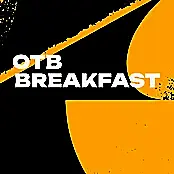All this week on OTB Sports, we will be running a series of panels and discussions across our platforms on The Future of Irish Sport, and we kicked things off on OTB AM.
Sparked by the interesting developments in New Zealand, where the country's five biggest sporting organisations have pooled together to make sport more enjoyable and engaging for young kinds, we've decided to examine the grassroots of our country's biggest games.
To start off our week-long discussion, we spoke to former Dublin footballer, minor manager and senior coach Jason Sherlock, as well as the GAA's Director of Games Development and Research Pat Daly, about what needs to be done to encourage both kids and adults to stay involved in sport.
Daly says the biggest attitude that needs to be challenged is the obsession with making the good players better, and disregarding those who aren't as naturally gifted.
He says the biggest development made from the GAA in recent years have been the Go Games, an initiative which ensures every child playing gets to play a full match, regardless of their ability.
"If it comes from New Zealand it must be right. It's the kind of thing we've been trying to do here for a number of years. We started with the Go Games, they were introduced so that every kid got a "go" up to under 11s, for the entire game, so that there weren't any substitutes.
"There was huge opposition to that, because the culture is 'Keep the best, forget the rest and win at all costs'. That permeates its way down from the intercounty game. With the Go Games, we wanted to put the person at the centre of the process.
"There was some research from Munster recently where they conducted a review of their work on the ground, and the two foremost requirements in terms of their children were wellbeing and personal development. We have to get back to putting the person at the centre of the process, and putting wellbeing at the epicenter of the process. If we're not contributing to the person's wellbeing, then we have to question what we're at," he said.
"The culture is permeating down from what they see - and that's understandable - but at the end of the day I think it's incumbent on people in education to ensure coaches have a good understanding of what they're doing, and they're trying to develop a person," he added.
'The person wants to be the best they can be'
However, Daly also stressed that the increased focus on participation and enjoyment will not result in less talent emerging, highlighting how his experiences have shown that all sporting activity will retain their element of competitiveness.
"We also have Super Games at youth level, they're proving very popular, they're walk-up recreational games, and they're competitive. Everything is competitive, even backyard games are competitive. But the important thin is they're developmental. The emphasis is not on winning. That's the type of thing that drives the intrinsic motivation. The person wants to be the best they can be.
"If we can get a model that embraces the child and youth, in my opinion everything until 17 should be developmental. If we have the have the child-youth interface right, we could have seen with the Cúl Camps since 2006 it can be done and can have huge potential if the thinking is right."
Jason Sherlock drew from his experiences both as a coach and a player in multiple sports, that the role of a coach is more important than ever.
And while it's imperative to ensure coaches have the skills and tools to do the job, Sherlock stressed that finding the right people is even more important.
"When I look back, it wasn't great coaches that influenced me, it was great people. You listen to things about the late Eamonn Ryan, Jerry Kiernan in an athletics context. The first thing people say about them, are them as people and the influence they had.
"You look into our sporting organisations, particularly GAA clubs, there are loads of great people that are willing to give support to younger boys and girls, to help them along the way.
"That's the starting point. It doesn't have to have the best drills, or best coaching, or going unbeaten."
Sherlock also spoke about coaches having self awareness for who they are and who they are talking to. He cited former Dublin manager Jim Gavin, and how his approach to the game would hugely differ based on the team and people he was involved with.
"Jim's context as a Dublin senior intercounty manager - and this is part of the challenge - that's not necessarily a good copy and paste for a young aspiring coach with an under 14 team. And I think I've no doubt Jim is a totally different coach when he's out with his son's under 12s team.
"You talk about drop-off in teenage years, my anecdotal belief is that the reason that happens is because young boys and girls have a brain in their head and they can make decisions for themselves, and they realise 'What I've had to do for the last number of years, when I'm told to do this and that, I don't really want to do that anymore'.," he said.
Want to give us your thoughts on the Future of Irish Sport? Send us a tweet, or message us directly if you wish to remain anonymous.








